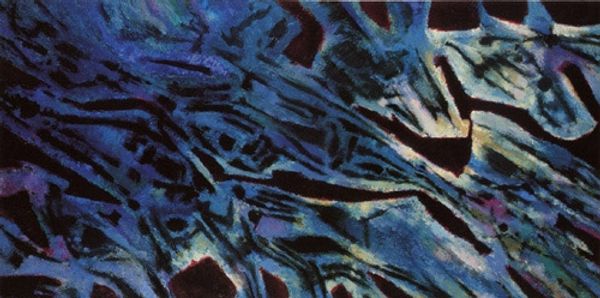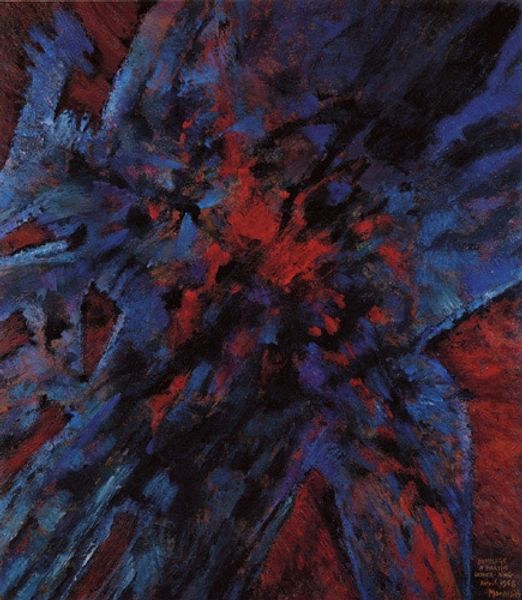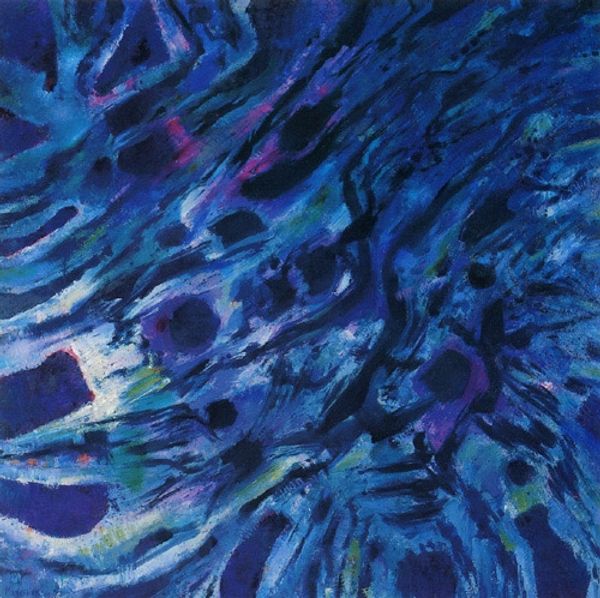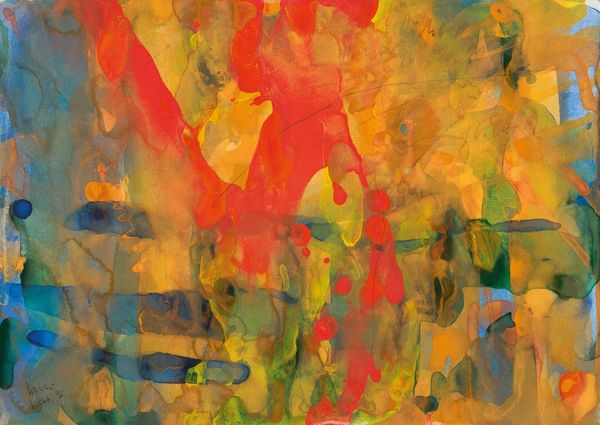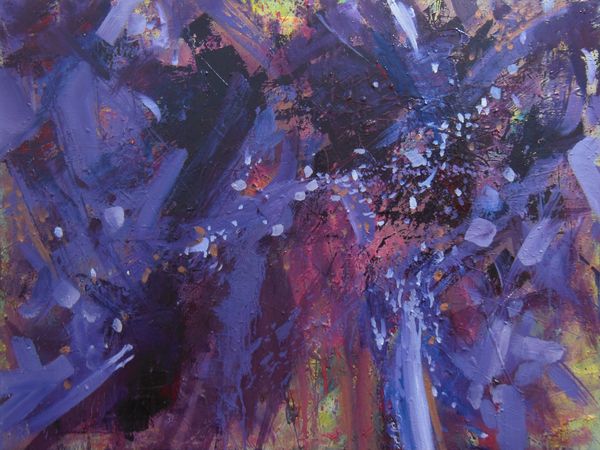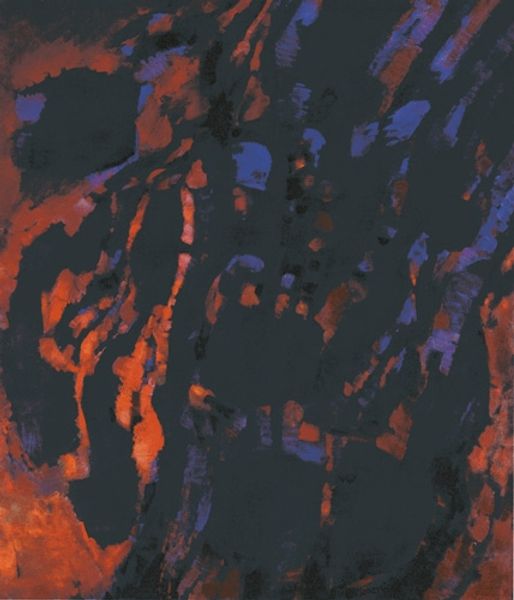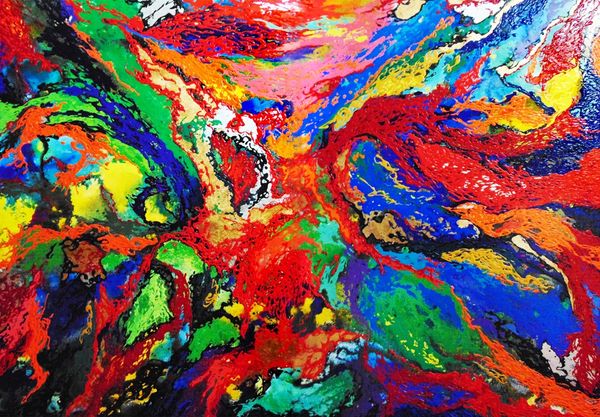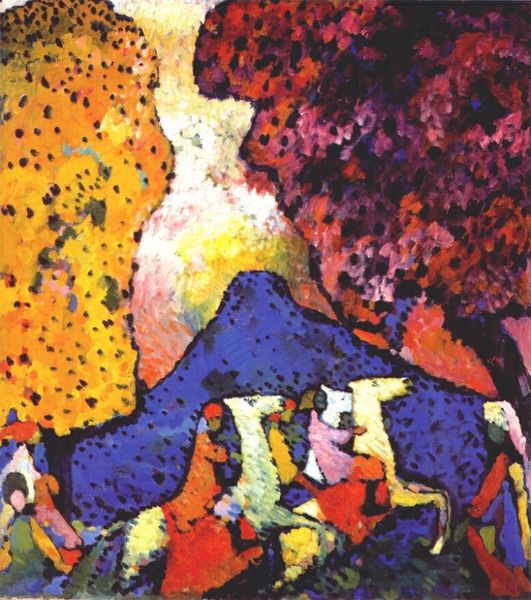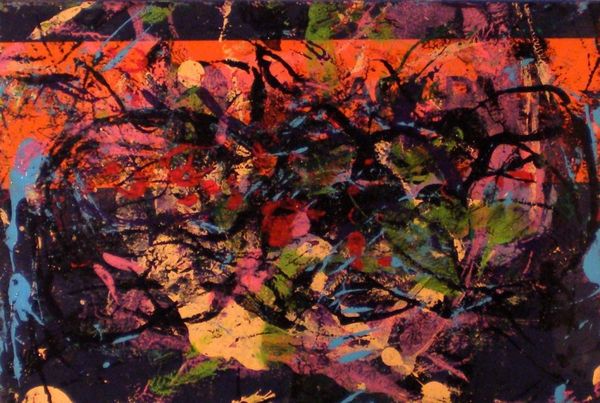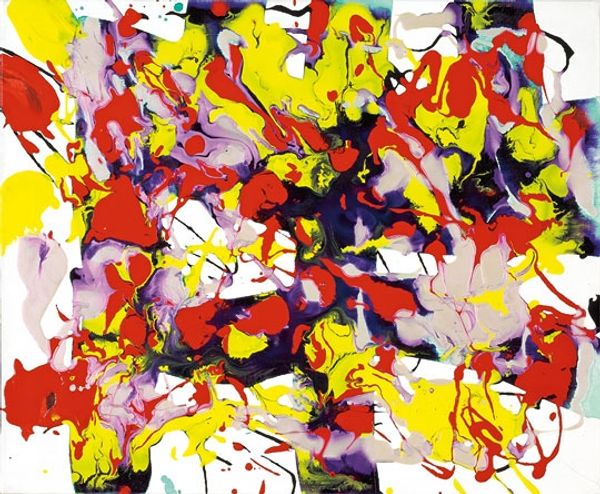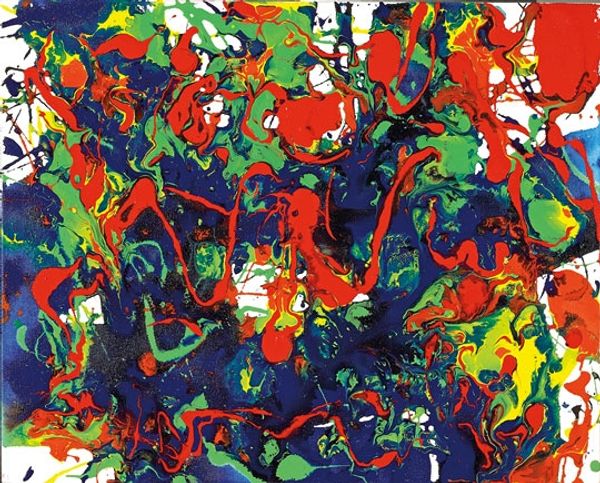
painting, acrylic-paint
#
abstract-expressionism
#
abstract painting
#
painting
#
acrylic-paint
#
neo expressionist
#
acrylic on canvas
#
abstract-art
#
abstraction
#
abstract art
#
modernism
Copyright: Alfred Manessier,Fair Use
Editor: Here we have Alfred Manessier’s "Hommage à Miguel de Unamuno - Le Torrent vert," painted in 1965, using acrylic on canvas. I'm struck by the swirling composition and intense colors; there's a definite feeling of movement and maybe even turmoil. How do you interpret this work? Curator: Given the title, referencing Miguel de Unamuno, a Spanish essayist, poet, novelist, playwright, philosopher, professor of Greek and Rector at the University of Salamanca, we should situate this abstraction within the socio-political context of mid-20th century Spain, then under Franco's dictatorship. Unamuno was a vocal critic, experiencing exile. So, with that knowledge, how might that impact how you understand the ‘green torrent’ aspect of the painting? Editor: I guess I initially saw the title very literally. Now, knowing Unamuno's history, the “torrent” could represent a flood of ideas, a relentless force for change maybe. But why "green"? Curator: Well, green is often associated with hope, life, and growth, but can also evoke envy, and unease, can't it? Manessier was deeply religious, a significant detail. In Christian iconography, green can signify spiritual renewal. What if he’s using the colour and Unamuno's legacy to signal hope despite oppression, faith as resistance, even? Do you see that in the swirling energy of the brushstrokes? Editor: That’s interesting. I can see how the colours fight against the darker shades, and how the texture gives that a sense of urgent expression. Manessier must have felt strongly about Unamuno’s beliefs. Curator: Precisely. And it pushes us to question the role of the artist. Manessier’s abstract expressionism here wasn't simply aesthetic; it was a profound political act, honoring intellectual dissent against tyranny. Editor: It’s incredible how knowing the context reshapes my perception of the entire piece! Thank you. Curator: The beauty of art lies in that very dialogue. It isn't just about what we see, but about understanding the histories and struggles embedded within.
Comments
No comments
Be the first to comment and join the conversation on the ultimate creative platform.
